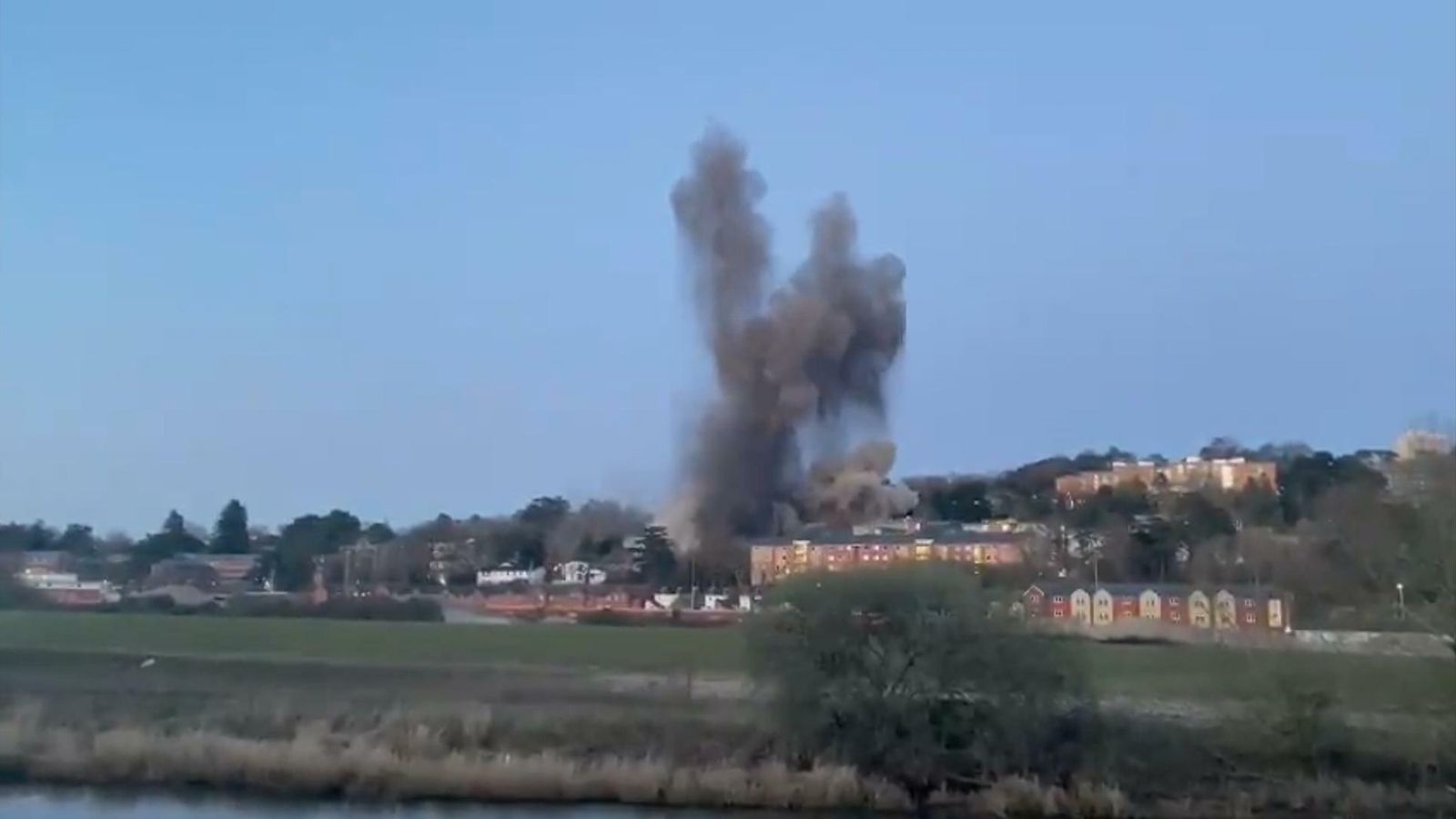Windows were blown out and homes damaged after a Second World War bomb was detonated in Exeter, police said.
The controlled explosion took place at 6.10pm on Saturday after the 1,000kg “Hermann” bomb was discovered on a building site in Glenthorne Road on Friday.
Police evacuated people from 2,600 homes, including 1,400 students at the nearby University of Exeter, over the weekend, but “structural damage has been caused to some buildings”, Devon and Cornwall Police said on Sunday.
UPDATE: WW2 bomb detonation, #Exeter – Safety assessment work is being conducted today. Residents should not return home until further notice. The council's helpline will re-open at 9am for residents needing accommodation advice and support: 0345 155 1015https://t.co/OEPYTuoGZJ pic.twitter.com/bQyDeGFnbb
Despite a 400m cordon around the site, the force said: “Extensive work to mitigate the impact of the blast, including the laying of 400 tonnes of sand, the building of walls and the digging of trenches, was implemented by Royal Navy and Army bomb disposal experts.
“However, unfortunately structural damage has been caused to some buildings, primarily within the 100-metre cordon, including blown-out windows and cracks in brickwork.”
Structural assessments are being carried out today in the hope that families can return to their homes, police added.
The controlled explosion, carried out by the Royal Navy bomb disposal team with the help of Army personnel from the Royal Logistics Corps, was heard for miles around.
According to police, the impact of the blast had been “significant”, with debris thrown at least 250m and a crater formed around the size of a double decker bus by the explosive force.
Most evacuees are staying with friends and family, in a permitted exemption to coronavirus restrictions, while a small number are staying in hotels, the council said.






















